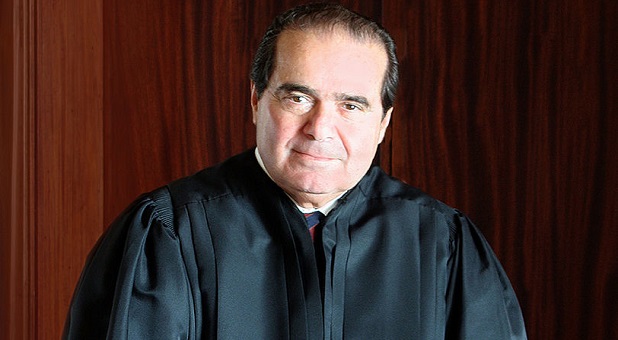Evangelicals Had No Say in Today’s Gay ‘Marriage’ Ruling: Scalia
The 5-4 Supreme Court decision to legalize gay “marriage” nationwide greatly disappointed evangelical Christians. Perhaps that is no coincidence, since there no evangelical Christian sits on the Supreme Court. That fact was pointed out by a Catholic, Justice Antonin Scalia, in his scathing dissent to the Obergefell v. Hodges ruling. Scalia began by noting that Supreme Court justices are “hardly a cross-section of America.” The current Supreme Court, he wrote, “consists of only nine men and women, all of them successful lawyers who studied at Harvard or Yale Law School. Four of the nine are natives of New York City. Eight of them grew up in east- and west-coast States. Only one hails from the vast expanse in-between.” He noted that currently there is “not a single evangelical Christian (a group that comprises about one quarter of Americans), or even a Protestant of any denomination” on the High Court. The Court’s nine justices currently include six Catholics and three Jewish people. There has not been a Protestant on the High Court since Justice John Paul Stevens, a judicial activist appointed by President Ford, retired in 2010. “The strikingly unrepresentative character of the body voting on today’s social upheaval would be irrelevant if they were functioning as judges, answering the legal question whether the American people had ever ratified a constitutional provision that was understood to proscribe the traditional definition of marriage,” Scalia wrote. Instead, he said, the decision on this volatile issue – with deep potential to harm religious liberty – is being made “by a select, patrician, highly unrepresentative panel of nine,” something that violates “a principle even more fundamental than no taxation without representation: no social transformation without representation.” Evangelicals actually became less likely to support same-sex “marriage” between 2003 and 2013, according to a poll from the Barna Group. Scalia also referred to the Bible when he accused the Supreme Court’s majority of acting with tremendous hubris in overturning the millennia-old definition of marriage. “Hubris is sometimes defined as o’erweening pride; and pride, we know, goeth before a fall.”
















































